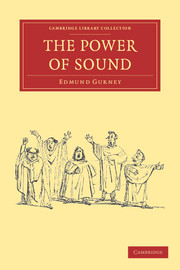
- Cited by 4
-
Cited byCrossref Citations
This Book has been cited by the following publications. This list is generated based on data provided by Crossref.
Rozin, Alexander Rozin, Paul and Goldberg, Emily 2004. The Feeling of Music Past: How Listeners Remember Musical Affect. Music Perception, Vol. 22, Issue. 1, p. 15.
Bountouridis, Dimitrios Brown, Daniel Wiering, Frans and Veltkamp, Remco 2017. Melodic Similarity and Applications Using Biologically-Inspired Techniques. Applied Sciences, Vol. 7, Issue. 12, p. 1242.
Carugno, Giovanna and Patturelli, Cristina 2019. Singing Vocal Pedagogy in the Nineteenth Century Neapolitan School: The Work of Francesco Florimo. Voice and Speech Review, Vol. 13, Issue. 1, p. 83.
McDonald, Geoffrey and Wöllner, Clemens 2022. Appreciation of Form in Bach’s Well-Tempered Clavier . Music Perception, Vol. 40, Issue. 2, p. 150.
- Publisher:
- Cambridge University Press
- Online publication date:
- October 2012
- Print publication year:
- 2011
- First published in:
- 1880
- Online ISBN:
- 9781139105514
- Subjects:
- Music, Music: General Interest, Music Performance


